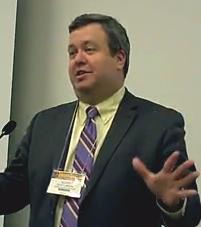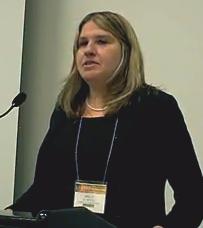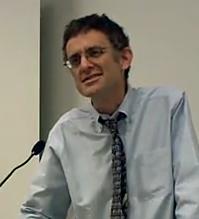
About 45 communicators and as many scientists gathered yesterday in Boulder to participate in a communication workshop jointly sponsored by the National Science Foundation, Academy for the Advancement of Science, National Center for Atmospheric Research, and the University Corporation for Atmospheric Research. We discussed social media, science journalism, and best uses of video. I met some fellow Tweeters face to face for the first time, and came away very enthusiastic about the opportunities for me to incorporate new practices into my work. I reproduce here a slightly edited collection of Tweets from those attending the conference. You’ll find some potentially useful links here too.
It was great to see confirmation that our conversation was being observed in real time from the outside world: @tiffanylohwater chimed in: “Reading live tweets from Communicating Science workshop at in Boulder since I’m missing this one!”
My notes first, then the perhaps more informed ones from my Tweeting colleagues.
Communicators can help researchers strengthen proposals RE impact of work
Jeff Nesbit, NSF: the science media landscape changing rapidly gatekeepers going away, need to engage public directly
Karen Sandberg, NSF: America Competes Act strengthening reqs for ‘broader impact’
Molly McElroy: Communicating science as imp as doing the research
Nesbit: CNN has no staffer to cover science More need to engage public directly
Nesbit: crucial to show public support in order to get $$ for science communication. NSF creating
reply
Nesbit: crucial to show public support in order to get $$ for science communication. #aaas #ucar NSF creating & syndicating its own sci content.
Nesbit: national media betting on iPad as delivery platform
Nesbit: nearly impossible to reach mass audiences. Advertisers know it. Importance of engaging niche audiences
NSF helps fund science coverage w/ media science partners US news, PBS news hour, NBC, others & transparency is very imp.
www.aaas.org/communicatingscience
And these posts from Kristen E. Asmus, Managing Editor, Geological Society America, aka @Colo_kea
“Regional network of science communicators” -can we really form this/support each other? Let’s find out! (quarterly mtgs?)
introducing myself -tweeting for Geological Society of America as Managing Editor GSA Today & CHIEF tweeter )
media advisory 09-032 Online Deception http //bit.ly/dvS4MQ
Awesome! Do you get to post it online? (the video)
At a meeting on communicating science, only 6 ppl tweeting – has it not caught on, or is it thought to be rude?
Burning through the notepad paper here — gonna have lots of AI (action items) to go through!
check out “metal foam” http //bit.ly/aVNkJl video http //bit.ly/au2QSr & women role models http //bit.ly/a1zkF2
Digital science A-Z for science communicators –yes! Let’s get that workshop going!
Free podcast/audio editing software http //audacity.sourceforge.net/
If most science agencies are short-staffed on comm officers, how will generating more coverage be handled? Overwhelm or growth?
Interested in Web 2.0 to get your msg across? I recommend http //bit.ly/aiUJSY
National Science Digital Library http //bit.ly/vjrzg “always interested in contributions”
Worked w/nervous scientist who had never talked to reporters…”What do I say? How should I act?” I said, just be yourself.
YOU can get something on NSF’s Web site “We will do our best to get it up” on the site. Acc to Josh Chamot, NSF
And these posts from The Geological Society of America aka @geosociety
“Regional network of science communicators” -can we really form this/support each other? Let’s find out! (quarterly mtgs?)
– send us anything that is TRUE with URL and a picture (for Science 360)
@NSF_GEO @NSF @AAAS_News @AtmosNews Thanks for hosting today’s communicating science workshop! Many ideas sparked!
Check out Science Nation http //www.nsf.gov/news/special_reports/science_nation/
demo of Science Education Engineering & Innovation site http //bit.ly/cIgMhc (expand)
Fired up by seminar/workshop on communicating science Lots of ideas coming my way!
Good question -how do we get images to “preserve for future research”? Will you share your images of geologic interest?
Here’s a link to NEON (mentioned in ) http //www.neoninc.org/
Here’s one digital library http //www.dlese.org/library/index.jsp
Link to Science 360 http //news.science360.gov/files/
Lots of people here have only one person or too few persons in their communications departments – significance? OK, not OK?
National Science Digital Library http //bit.ly/vjrzg “always interested in contributions”
We need to learn how to add videos to our outreach to encourage interest and understanding of science & engineering
And these posts from Stephanie Chasteen aka @sciencegeekgirl
Many people don’t realize the power of audio — info on the go. But I’m a radio geek & podcaster, so biased.
keep tweeting, some of us went to PIO session but are interested in what’s going on over in that room.
Currently in the AAAS Communicating Science workshop in Boulder. Not sure of the best hashtags…
ISE grants R major grants, & hard 2 get, sadly. Usually need partnerships. RT @ ISE grants http //bit.ly/ctIJl9
Overworked AP science news reporter Seth Hornstein tells PIOs not to contact him, instead go to Science360.
Project Tomorrow SpeakUp survey — kids do NOT trust .gov domains anymore! Gov is no longer trusted source.
Reuters doesn’t cover any science and AP barely covers any. NSF ScienceLive tries to fill gap.
SciCom workshop – many PIO’s are particularly interested in video & social media. Video’s great, but what about audio?
Science360 – NSF funded site gathers tidbits from various sources (blogs, PIO’s). Doesn’t need to be NSF funded.
And these from Sophia Bliu aka @sophiabliu
Ask for audience questions near the beginning of talk then go back to their questions at end to create engagement earlyon
At a workshop on Communicating Science at http //twitpic.com/1jepwj
Avoid saying “intuitive” or “as we all know” – We can’t make assumptions about our audience
Be careful about playing games w/ the audience, an inherent test in the message may not be liked by most, i’m not in school
Don’t over simplify but balance it w/ specificity, determine what detail is necessary, sometimes the detail makes the story
Good messages are miniature, memorable, and meaningful (alliteration helps -) and 3 points help
I volunteered to be videoed and share my message about my research, a nerve-wracking but valuable experience
It is rewarding to see your work is relevant to society and is of interest to society at large.
Most scientists are introverted and need some quiet time before and after their talks
The golden moment for audience attention is the first 3 minutes and at your conclusions, make them memorable with a msg
The more you can get a picture in my head of your message the better
The public uses the word “theory” and “models” different than scientists do, avoid using these words
Think about how you react to audience questions and be comfortable just saying “I don’t know”
To not get misquoted or misinterpreted, ask the reporter to repeat your response and just repeat you main message
Use your body as a prop to direct attention in strategic ways
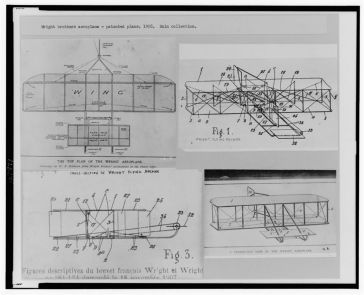
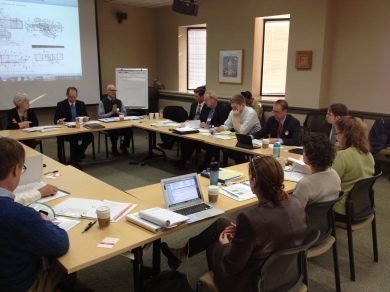




 Posted by paul baker
Posted by paul baker 
